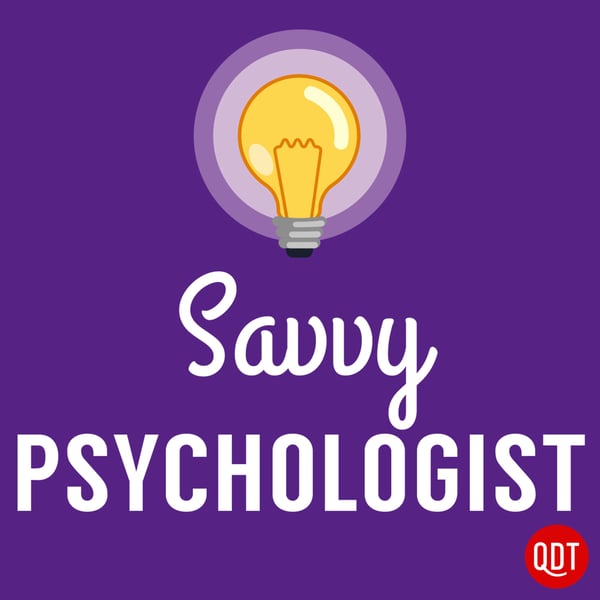5 thought patterns that can make or break your relationship
Savvy Psychologist
Macmillan Holdings, LLC
4.7 • 1.4K Ratings
🗓️ 9 October 2024
⏱️ 8 minutes
🧾️ Download transcript
Summary
Transcript
Click on a timestamp to play from that location
| 0:00.0 | Have you ever been with someone and all you can notice is their annoying habits? |
| 0:09.3 | Why don't they ever put their clothes in the hamper? |
| 0:13.1 | Or is it really too much to ask |
| 0:15.6 | to get a good morning text every single morning? |
| 0:19.7 | These are simply a couple of the types of questions and experiences that people talk to me about on a daily basis, |
| 0:28.0 | which inspired me to talk about the five types of thoughts that can make or break relationships. |
| 0:35.0 | Welcome back to Savi Psychologist. |
| 0:38.0 | I'm your host Dr. Monica Johnson. |
| 0:41.0 | Every week on this show, I'll help you face life challenges with evidence-based approaches, a sympathetic ear, and zero judgment. |
| 0:50.0 | Today we're discussing the five relationship cognitions identified by Epstein and |
| 0:55.9 | Bocum that influence how you experience your relationship. The first thing I'm |
| 1:01.5 | going to mention is selective attention. So selective attention refers to the tendency to focus on specific aspects of a partner or relationship while ignoring other ones. |
| 1:15.0 | For example, let's talk about Jane. |
| 1:18.0 | Jane notices every time her partner Tom leaves dirty dishes in the sink, but overlooks all the times he |
| 1:27.1 | cleans the house and cooks dinner. As a result, Jane feels frustrated and |
| 1:32.2 | believes that Tom is generally untidy, even though he contributes |
| 1:36.9 | significantly to household chores in other ways. |
| 1:40.5 | The second is attribution. |
| 1:44.7 | Attributes are the explanations that individuals create for their partner's behavior, |
| 1:50.5 | which can be internal, so this is blaming the partner's personality or external |
| 1:55.8 | blaming external circumstances. So here's an example of that using Mark and |
| 2:02.0 | Greg. When Mark forgets their of that it's because he doesn't care about their |
... |
Please login to see the full transcript.
Disclaimer: The podcast and artwork embedded on this page are from Macmillan Holdings, LLC, and are the property of its owner and not affiliated with or endorsed by Tapesearch.
Generated transcripts are the property of Macmillan Holdings, LLC and are distributed freely under the Fair Use doctrine. Transcripts generated by Tapesearch are not guaranteed to be accurate.
Copyright © Tapesearch 2025.

